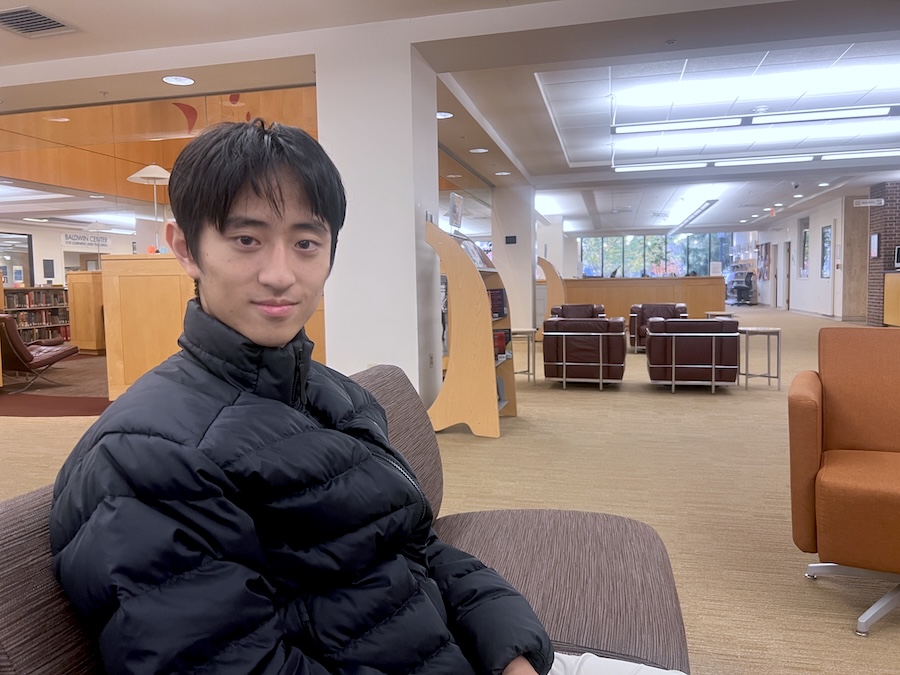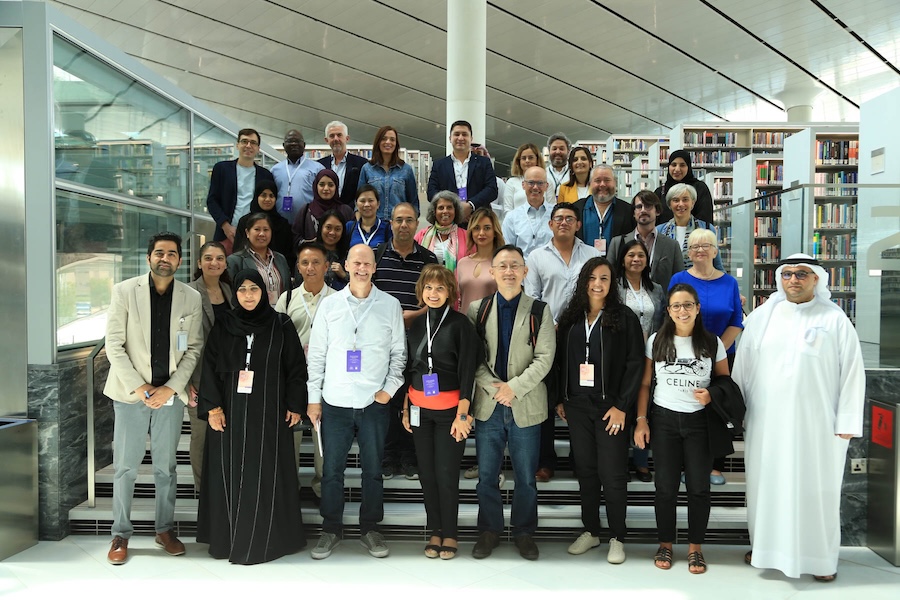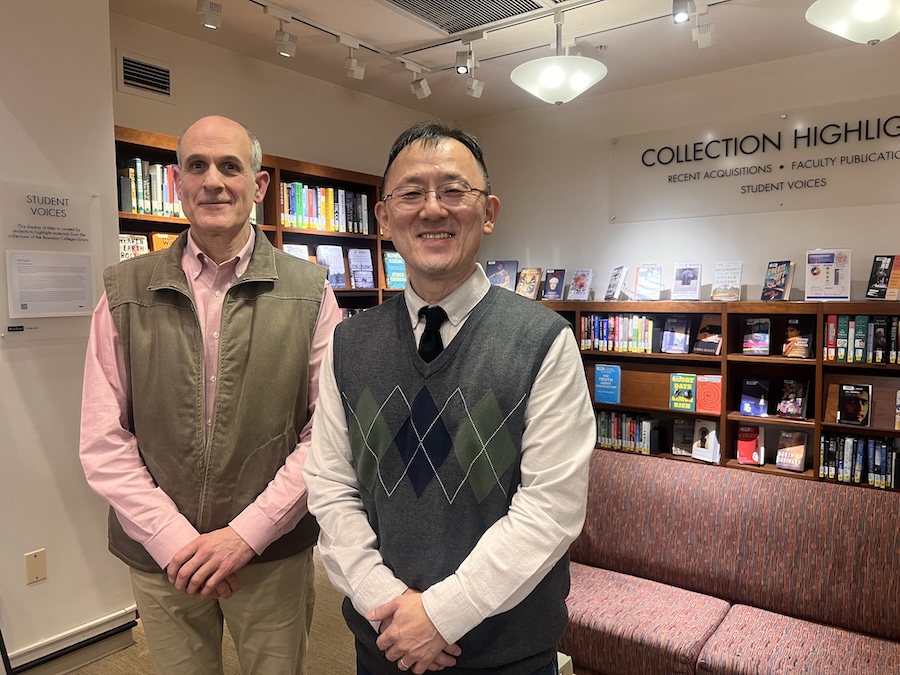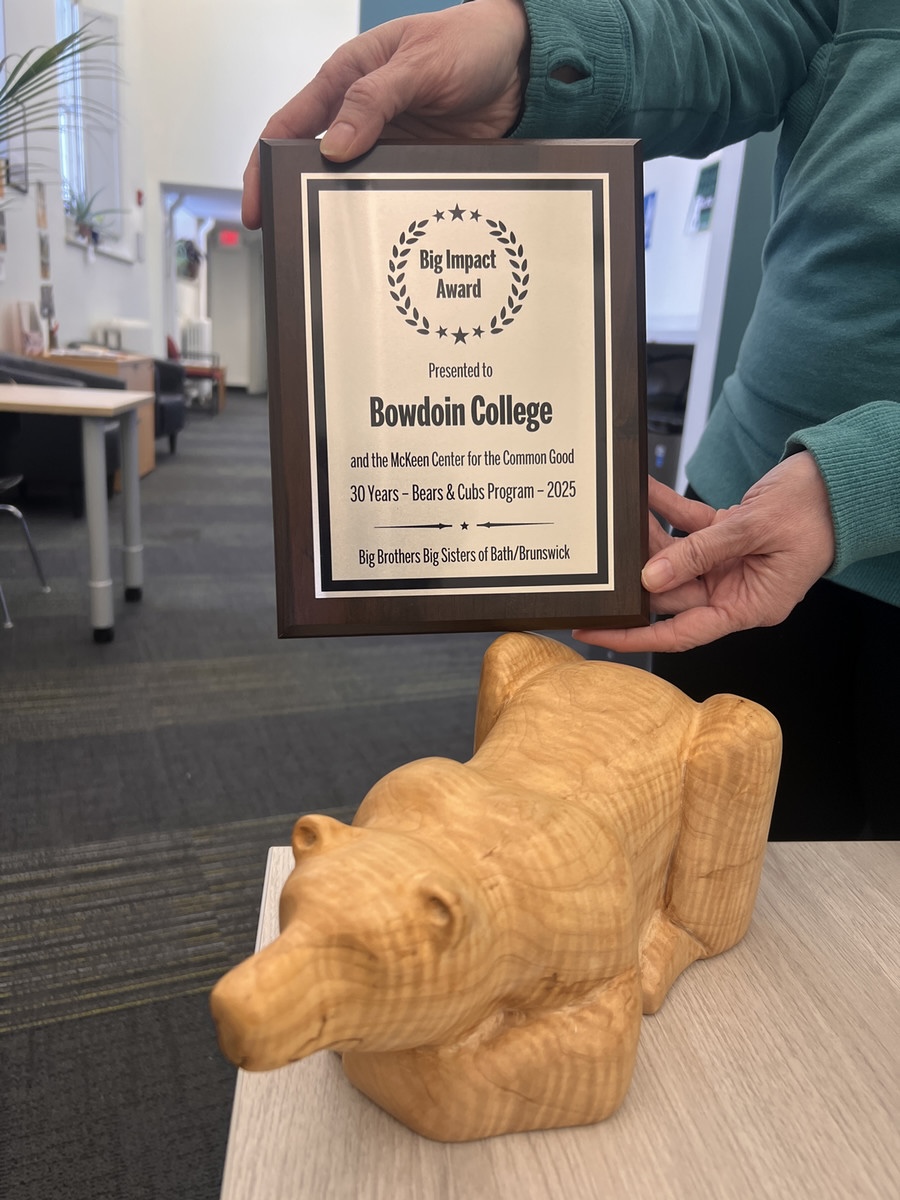Global Library Network Helps Scholars Overcome Conflicts, Censorship, and Cost
By Rebecca GoldfineThe library at Bowdoin is at the forefront of an initiative to share resources with other libraries around the world—particularly those struggling to access journal articles and books due to war, authoritarian control of information, or financial hardship.

The program, called RSCVD—an acronym for Resource Sharing Collaborative and Voluntary Document Delivery—began when academic libraries banded together to support one another through the disruptions of the pandemic. (The acronym originally stood for “resource sharing during the time of Covid.”
“It was March 2020 when libraries started closing,” recalled Director of the College Library Peter Bae in a recent interview. “And we were wondering, is there something we can do about this situation?”
As libraries shut down and their staff worked from home, scholars, scientists, and students lost access to materials that hadn’t yet been digitized. Existing systems such as interlibrary loan (ILL) were often bogged down by complex procedures, Bae said, and while these systems worked well domestically, they were difficult to connect across borders.
In 2021, the budding RSCVD initiative received a major boost when a library network in Italy known as NILDE—the Network Inter-Library Document Exchange—awarded a €350,000 grant to several leading libraries in the movement. The funding helped them develop an online application to make the project sustainable and user-friendly.

“We created a platform called Talaria—named for the winged sandals of Hermes—to deliver things faster,” Bae said. Talaria went live in 2024. “Since then, the number of participating libraries has increased, with new countries joining all the time. The most recent include Oman, Kyrgyzstan, Kazakhstan, Nigeria, and Iraq.”
Volunteers in thirty-three countries help keep information flowing. The program is free and easy for libraries to join and use—both as lenders and borrowers.
Bae and other RSCVD leaders are especially focused on supporting researchers caught in conflict zones such as Ukraine and Gaza. “They can’t access information for their studies,” Bae said of Gaza and the West Bank. “We are trying to help Palestinian students and scholars who need materials.”
He recalled receiving a recent request from a library in the northeastern part of Ukraine. “I checked Google Maps, and battles were happening twenty miles from there. Yet they are still doing research. It opened my eyes.”
“Educational resources shouldn’t be locked behind a barrier—they should be available to people all over the world.”
—Justin Zhang ’29
Since RSCVD launched, Bowdoin’s library has fulfilled requests from around the world—including Turkey, Spain, Colombia, Pakistan, Argentina, and Ireland. Many come from users seeking articles in medical journals, according to Guy Saldanha, the library’s interlibrary loan supervisor.
To support Bowdoin’s role in the initiative, the library partnered with the McKeen Center for the Common Good this year to hire a student assistant, Justin Zhang ’29, who will help process RSCVD requests. Zhang is also helping to develop an application that integrates Talaria with Bowdoin’s interlibrary loan database. The McKeen Center provided funding for his position.
This job, Saldanha explained, fits “within the College’s mission of engaging students in community service globally.”

“We want this experience to be a meaningful educational job for the student who occupies it,” he said. “Through this partnership with the McKeen Center, we’re creating an opportunity for a student to engage with global issues while developing IT and computing skills.”
Zhang, who plans to major in mathematics, said he was drawn to the position as an opportunity to make an impact.
“I think access to educational resources shouldn’t be locked behind a barrier—they should be available to people all over the world,” he said. “The users of RSCVD are mostly outside the main networks of borrowing and often affected by external circumstances: first the pandemic, now war, censorship, and financial challenges. Some universities can’t afford academic journals, but that shouldn’t limit people’s learning or their path to education.”
Saldanha said RSCVD’s work is more crucial than ever. “We want to underscore the international context in which this is happening,” he said. “It’s a time of dramatic and abrupt withdrawal of governmental support for academic communities around the world, especially in the physical and medical sciences.”
He cited both cuts in US aid to medical research and development in emerging countries and new tariffs that make it harder to ship books internationally, since postal services increasingly treat them as commercial goods.
“We think that small contributions like this, among a growing number of academic libraries, can make a difference,” Saldanha said.



